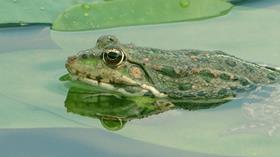
The British Crop Production Council (BCPC) has attacked claims made by an article in The Sunday Times that agrochemicals are harming amphibians in British ponds.
The article was entitled “Ponds fall silent as toxic cocktail destroys frogs and toads,” and cites a report by the activist group ChemTrust. The report quotes results of injection tests using DDT, dieldrin and atrazine, which showed effects on immune systems and implicated modern agrochemicals in the outbreak of the lethal Ranavirus.
Chairman of BCPC Colin Ruscoe said DDT and dieldrin have not been used in the UK for decades and atrazine use ceased in 2004. “These chemicals bear no resemblance to modern crop protection products. Furthermore, injection assays are completely different from real-world exposure, as they by-pass normal skin barrier and detoxification mechanisms. It is unscientific – and irresponsible – to interpret these as relevant to field situations.”
The BCPC said it is concerned that such reports reinforce bad-decision making and, referring to the recent ban on neonicotinoids, suggested the EU Commission has a track record of making decisions driven by politics rather than science.
The article in The Sunday Times quoted Trent Garner, of London’s Institute of Zoology and author of the study, who said that amphibians were declining on an unprecedented scale. Garner said: “The reasons are the rising concentrations of agricultural and urban pollutants plus infectious diseases and how they act together.”



